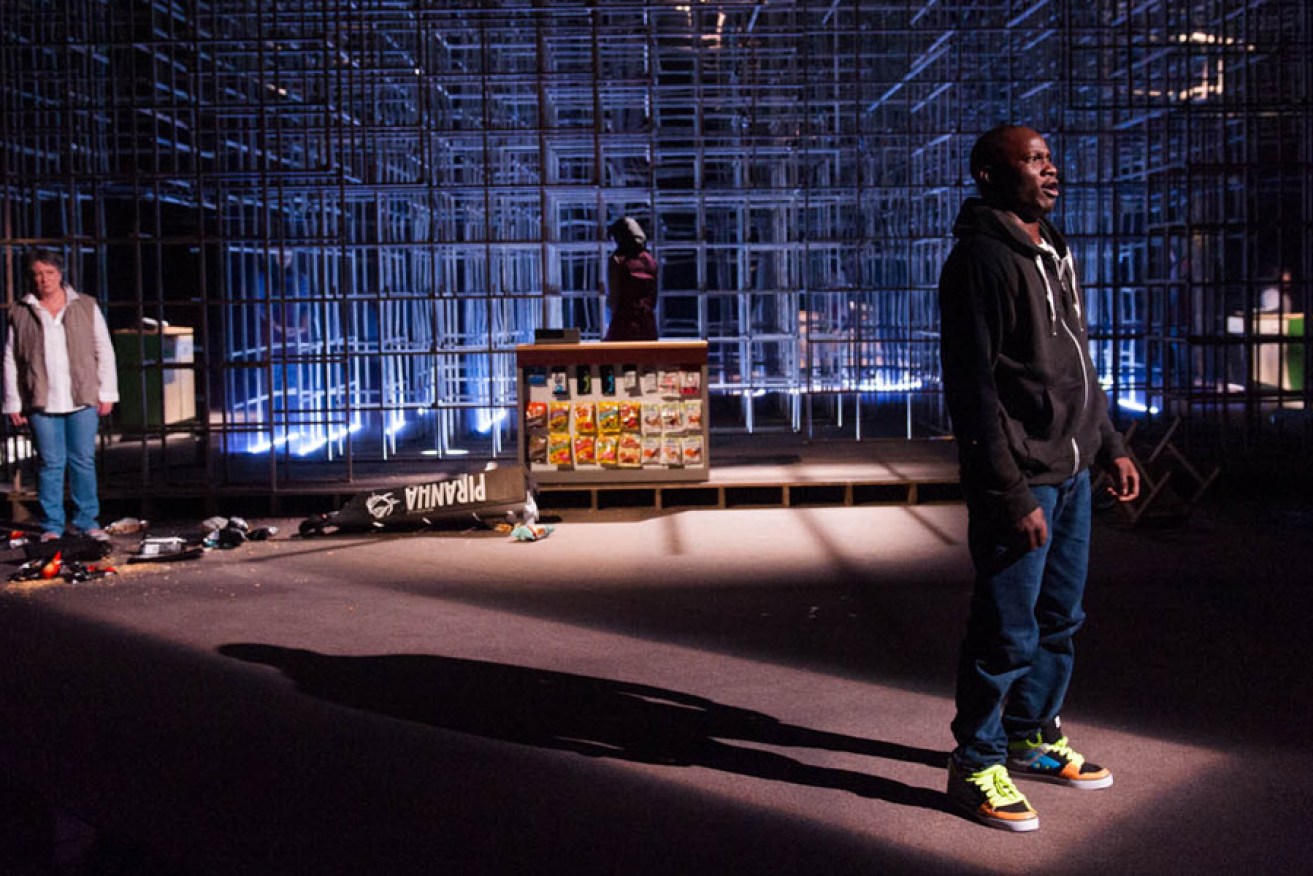Maggie Stone explores vital issues

Kris McQuade and Shedrick Yarkpai in Maggie Stone. Photo: Matt Nettheim
Maggie Stone is a hard-hearted loans manager who is in trouble at work because of her poor customer relations skills; she is a tough, smoking, drinking, lonely woman in poor health and in search of her feminine side.
Maggie makes an error of judgment by not approving a small loan to an African man, Prosper Deng, who turns to crime and leaves his family destitute, owing ridiculous amounts of money to Leo Hermes, a loan shark. Deng’s son, Benny, has little alternative but to turn to crime to pay off family debts and Maggie does what she can to assist the family and atone for her earlier wrong-doing.
Kris McQuade is excellent as Maggie, a character who is openly racist, funny in a dry Australian way, and she makes it evident that she doesn’t really care for anyone. Circumstances lead to Maggie needing to be involved with the Deng family and her hardness softens a little when she decides to lend them some money or participate in their family life. McQuade takes us with her on this journey of self-development and social awareness, and we feel the heartache and pain of her predicament.
Sara Zwangobani is superb as Amath Deng, an African woman in a strange country with different customs who has to find ways to bring up her wayward son and baby daughter. Zwangobani radiates the joy and pride of motherhood, reveals the sorrow of a poverty-stricken widow, and displays the strength of a woman determined to succeed.
Shedrick Yarkpai skilfully plays Prosper Deng and then his son, Benny; he, too, provides many moments of warmth, anger and power in the two roles. Mark Saturno as the loan shark, Ansuya Nathan as the shop owner and doctor, and Genevieve Mooy as an affluent church friend create three-dimensional characters who have significant moments in the Deng family’s life.
Maggie Stone … explores the racial issues that are problematic not only for us but all multicultural societies.
Victoria Lamb’s set is very impressive: a giant wooden cage with mirrored walls reaches to the ceiling like an enormous financial building, or it could be a block of flats where poor immigrants are crammed in, or perhaps hospital corridors; it invites imaginative interpretation. Chris Petridis’ lighting cleverly exploits all the nooks and crannies provided by the interesting structure and, together with minimal furniture, they create, almost filmicall, rapidly changed scenes. Occasionally the actors are close enough to touch and that intimacy is welcome in this production.
Adelaide playwright Caleb Lewis has written an impressive script. He has focused on one woman and her contact with a poor African family and, in so doing, he explores all the difficulties and complexities associated with refugees and racial prejudice, but his play touches on much wider issues such as the nature and role of charity and whether it assists or oppresses those who receive it. Lewis has set the play in suburban Adelaide, but it resonates globally, with international banks lending to the developing world but then enormous interest repayments keeping those poor countries poor.
Once again, State Theatre Company of SA artistic director Geordie Brookman (who also directs the play) has chosen a stimulating script, found an engaging cast and staged the play in a way that stimulates the senses and engages the intellect. Maggie Stone is a new production that provides an excellent vehicle for a female actor and explores the racial issues that are problematic not only for us but all multicultural societies.
The State Theatre Company is making a number of very good artistic choices and producing some excellent theatre – as it should. Maggie Stone is well worth seeing.
Maggie Stone is playing at the Space Theatre, Adelaide Festival Centre, until November 30.




